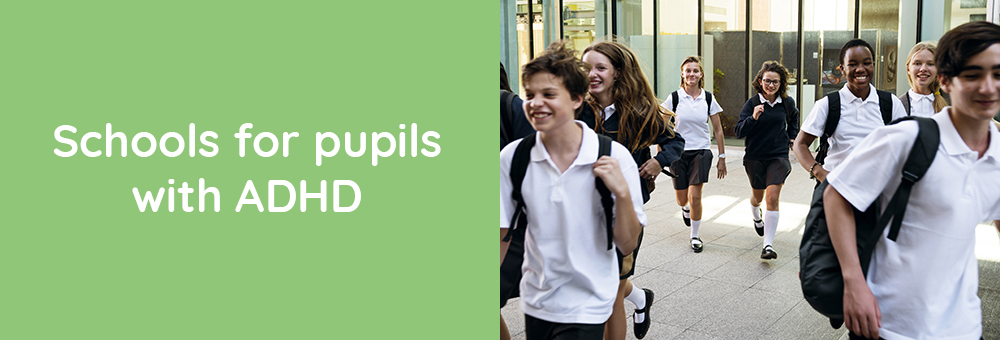
We always recommend that parents look at local schools and ask about their knowledge and experience with pupils with ADHD. Many schools do not advertise that they specialise in ADHD, but often are good at supporting their pupils who have ADHD or children with learning difficulties.
There are no schools that only focus on pupils with ADHD but there are schools that cater for the needs of pupils with ADHD. Parents need to be aware that even when looking at these schools they need to ensure the school can meet the specific needs of their child as children with ADHD are all different.
Here are Richmond schools and Kingston schools with SEN provision. In addition, there are also a number of private schools also offering SEN provision.
If you are looking beyond Richmond and Kingston, we have found this useful list of UK schools which advertise that they are experienced in ADHD matters. There is also another list of schools with SEN experience and here’s the list of independent/private schools [https://www.gov.uk/government/publications/independent-special-schools-and-colleges] .
Choosing a school for your child or teen with ADHD is an incredibly important decision. Careful consideration should be given to what extent they can meet the needs of your child. Look to see which ones might work for your child, then visit all of the ones you have identified with your education, health and care plan (EHCP), draft or otherwise, in your hand. Compare their offering with your child’s requirements. It is incredibly important that you visit the school and talk to the school about the needs of your child. Also, as part of your search, make enquiries from other parents whose children are at the school to hear about their experiences of how the school met the needs of their child. Bear in mind the other children’s needs may vary from the needs of other children and so make sure you are able to understand others’ experiences in context.
The current thinking is for schools to be inclusive, however, it will very much depend on how complex your child’s needs are and for parents to assess where their child will be best supported. Typically, the starting point is to consider mainstream schools and consider if this setting can meet their needs, but that’s not always possible. See this helpful post the process to selecting a mainstream school for a child with SEN needs.
You should be able to get a list of all the local (Borough) maintained special units and schools from your borough. This should list specialisms such as Autism, SCLN (social, communication and language needs) and BESD (behavioural, emotional and social difficulties). Or it may group into mild, moderate or severe learning difficulties. Get the ones for your neighbouring boroughs too, they may be closer or better suited.
The borough will consider your preference, but parent’s typically have more say when choosing a mainstream setting than a specialist one.
Most special schools require to be named in the child’s EHCP, where it matches your child’s EHCP with your preferred schools offering, facilities and abilities. Make your preference known to the borough as soon as possible. Then, have a backup in case it goes wrong.
If your child has an EHCP, your case officer is your voice within the borough office. Given that the borough decides where to offer you a school place, it makes sense to use this resource. In most cases a SEN panel meets once a week to approve or discuss SEN school placements in the current EHCP process. Your case officer can make suggestions about where to look and what the panel might say. They often know where there are ‘spaces’ in specialist settings or can guide you on who to contact for visits. They tend to be very busy people doing a lot of leg work – make sure that it’s for you. And remember you can get help or an advocate to help if you can’t make these calls.
See this useful video https://adhd-together.myshopify.com/products/understanding-ehcps-for-young-people-with-adhd on understanding and obtaining EHCPS in the Boroughs of Richmond & Kingston.
Places in special schools change. Pupils grow out of the school either in terms of age or their needs so places can open up. The borough may be able to provide additional support to a school or unit so they can meet the needs of your child.
Don’t rule out independent or private special schools. If there is no place suitable within a maintained school, then under the borough’s legal obligations they must provide suitable education to meet your child’s needs and place your child in a school even if it means having to come to a fee-paying arrangement or sending them out of borough. Here’s what maintained schools must publish online.
Pupils with ADHD can sometimes find the move from primary school to secondary school challenging. Secondary schools are often larger and also pupils typically move from one class to another for each lesson. Pupils with executive function difficulties often find this challenging and also if your child has sensory issues can also find it overwhelming. Therefore, careful consideration needs to be given to selecting the right school for your child.
